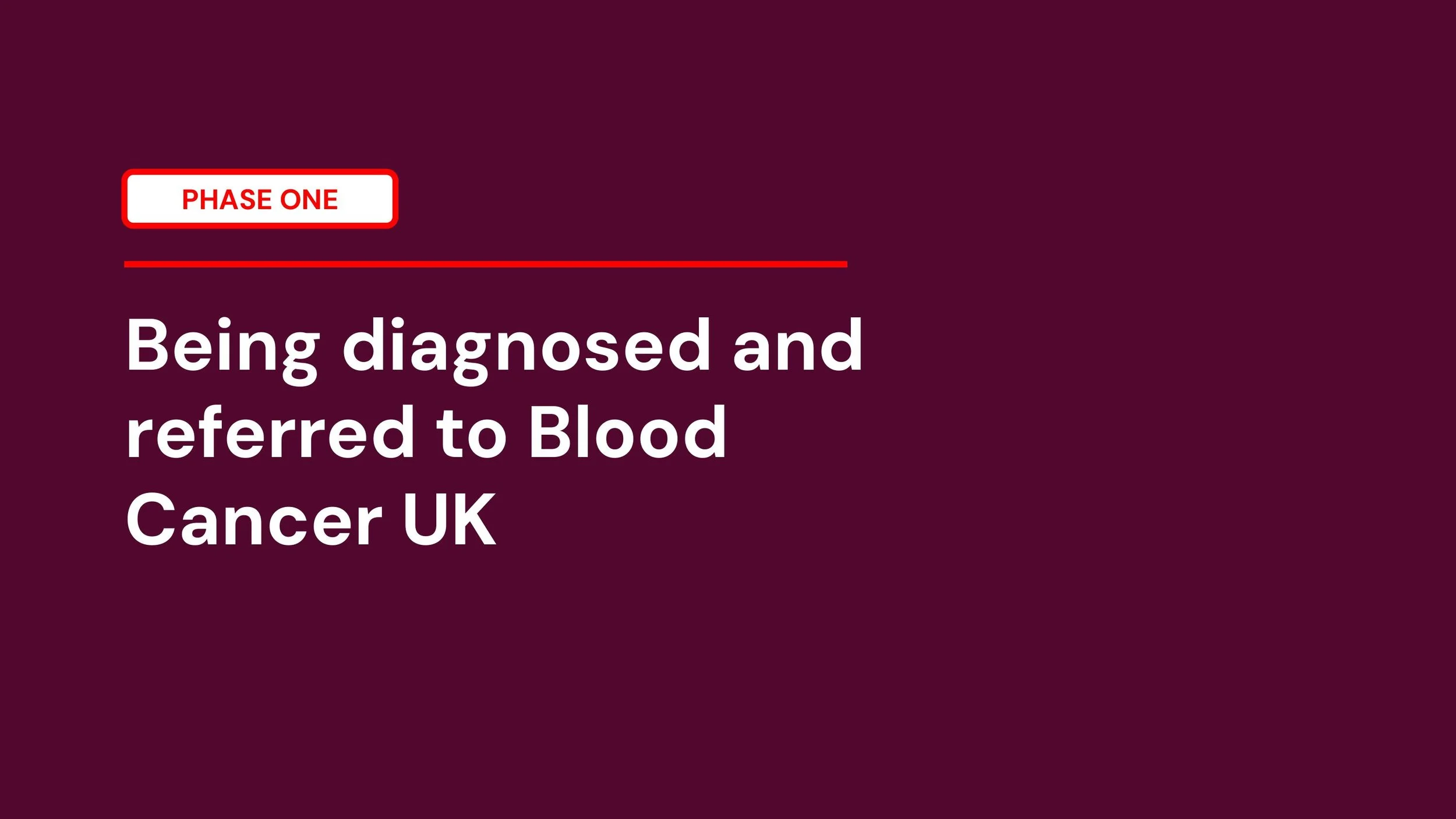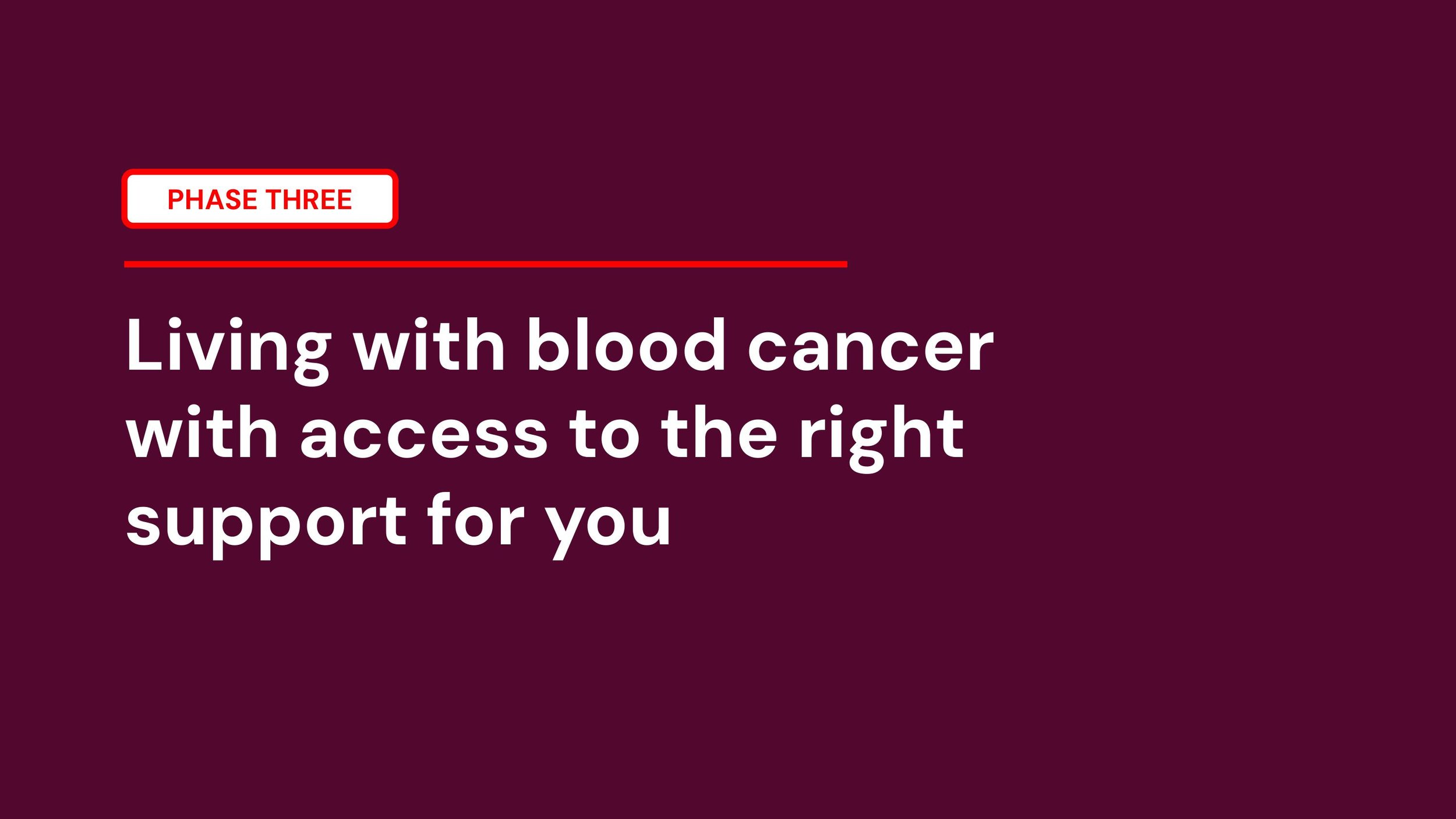Non-profit | Healthcare
Piloting a digital referral service within the NHS that connects patients to charity support at the point of diagnosis
Client: Blood Cancer UK Role: Lead Service Designer Duration: 13 months Date: 2023-2024
Context
Blood Cancer UK is a national charity that provides information and support to people affected by any type of blood cancer.
2023 marked the start of a 5-year service transformation programme to increase the charity’s reach and impact.
Challenge
Healthcare professionals are under acute pressures and many patients aren’t getting the emotional and practical support they need. Blood Cancer UK offers high-quality, trusted support services, but many people aren’t finding it.
The idea in a nutshell
A direct referral from NHS healthcare professionals into Blood Cancer UK for information and support when a patient is diagnosed with blood cancer. With a patient or carer’s consent, their contact details are passed to Blood Cancer UK who proactively contacts them to offer support and services.
The hypothesis: we believe a direct referral at diagnosis will mean more people will become aware of the support available and find support that’s right for them to feel informed, reassured and connected throughout their blood cancer journey.
My role
I was the Lead Service Designer, working in a multidisciplinary project team, translating early concept sketches into an MVP that could be piloted with NHS clinical teams. There was also a capability building focus to this work - I delivered organisational ‘lunch and learns’, team member buddying and design 101s throughout the project.
Approach
I began by facilitating sessions with the wider team to map our assumptions, frame problems and detail user journeys to define our biggest questions and gaps in understanding. I designed a Theory of Change workshop to align our thinking and describe the intended outcomes. These informed our indicators of success for the pilot and were iterated as we learnt
I ran workshops with 20 people living with blood cancer to test the overall concept using an example scenario storyboard. We wanted to learn whether people thought they would accept a referral in this context and what they would expect and want to happen next.
Developing an MVP
Once referred, patients or carers receive a series of friendly and welcoming emails (or a phone call) offering them information and support about blood cancer.
We utilised an existing and well-performing email campaign which allowed us to get something live quickly and test and learn exactly what information and support people needed at the point of diagnosis.
Alongside this we ran card-sorting exercises with patients to understand their priorities and identify any gaps around their information needs.
Following the principles of good form design, we designed a short and simple digital referral form which we tested and iterated with healthcare professionals.
Designing the pilot
The Blood Cancer UK team identified and engaged with a number healthcare professionals within their network to work in partnership to pilot the service.
I created and embedded a monitoring and evaluation plan and research methodology that the project team could easily implement. The goal of the pilot study was to learn about what works and what doesn’t about the service, and in what way, so that we can improve and scale the service.
Our key questions to be answered were:
How does the referral work in a live environment for healthcare professionals and people affected by blood cancer?
What is the impact of the referral and the effectiveness of achieving the service’s intended outcomes?
We successfully onboarded our first hospital trust and began testing and learning!
A bump in the road
Our aim was to onboard a number of different trusts - we wanted to learn more about scaling the service in different contexts and the impact on the operating model required. However, despite many positive conversations, we were struggling to ‘convert’ even warm leads. Our approach just wasn’t working and it was time and resource intensive.
An ‘accelerator’ sprint
Following a retro on the challenges and opportunities around onboarding more hospitals I ran an ideation session to think of ways to improve the onboarding flow. We strategically grouped and prioritised the ideas to agree a focus for a 4 week ‘accelerator’ sprint.
We began exploring what a more self-serve, digital onboarding experience could look like. Within the 4 weeks we rewrote content, recorded sharable video presentations, implemented online sign up forms, automated messages, enabled calendar booking tools and published a referral webpage.
This reduced the amount of back and forth, the number of face-to-face meetings and enabled us to promote the opportunity widely.
“We’ve tackled lots of complexity and challenges in the external environment, Nina has always been able to navigate this and find ways forward that still achieve outcomes for us and our service users. The result is something the entire charity is proud of, and has left a legacy in terms of the organisation’s digital maturity and confidence with designing new services”
Abi Howse, Senior Information and Support Manager at Blood Cancer UK
Impact
191
referrals in the first 7months from 2 hospital Trusts
73%
were referred on the same day or very soon after diagnosis
79%
said they received the referral at the right time
These are real people, who have just had a life-changing diagnosis, being connected directly to additional information and support.
“I feel they have been perfectly timed and with the right amount of content. Having small and regular information has helped me not feel overwhelmed and allowed me the chance to digest them before then next”
Anonymous, referred on the same day they were diagnosed with blood cancer
5
new hospital Trusts onboarded in 3 months
(compared to 2 Trusts onboarded in 10 months)




















